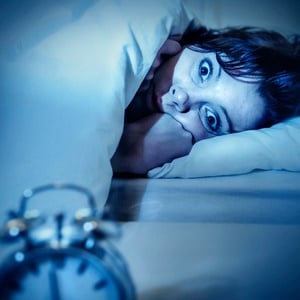
Insomnia is a disorder that causes us not to get enough sleep and can have a negative effect on our health, work and quality of life.
According to the South African Society of Sleep Medicine, about 30 to 40% of South African adults suffer from insomnia, with 10 to 15% of those cases saying that their insomnia is severe or chronic. Many think that as long as they can still function, they must be getting enough sleep.
But like Goldilocks, you want to get just the right amount; not too little or too much.
Health initiatives typically centre on diet and fitness. But the American Academy of Sleep Medicine and the Sleep Research Society state that getting enough sleep is just as important as eating right and exercising.
According to Health24, sleep is vital for the proper functioning of the entire body. Adequate sleep will also improve your vital functions and body weight.
Increases in inflammatory markers
Therefore it’s not surprising that your health can truly suffer if you're constantly shortchanging yourself on sleep. Heart disease, diabetes and obesity as well as the risk of accidents like car crashes top the list. More than the embarrassment of falling asleep at an important meeting, sleep deprivation can result in cognitive impairment – your judgment just isn't as sharp as it should be.
Missing out on needed sleep leads to higher levels of stress hormones and the hormones that regulate hunger. That can lead to the possibility of overeating and gaining weight. Poor sleep also been associated with increases in the inflammatory markers often seen with autoimmune diseases.
So what's the right amount?
Health24 mentioned in a previous article that there is no magic amount of sleep. Different sleep needs depend on factors such as age and your own personal basal need for sleep
Everyone has their unique needs, but on average seven to eight hours is associated with the lowest risk of heart disease. Some people may need nine hours. However, sleeping too much is also not good and some studies have found an association between more than eight hours of sleep and obesity.
Here are some factors that can cause insomnia:
- Emotional distress such as stress or anxiety
- An overuse of caffeine, nicotine or energy drinks
- Environmental factors such as a noisy neighbourhood, bright lights and extreme temperatures
- Medical conditions
- Eating a large meal too close to bedtime
- Vigorous exercise before bedtime
Read more:




 Publications
Publications
 Partners
Partners











